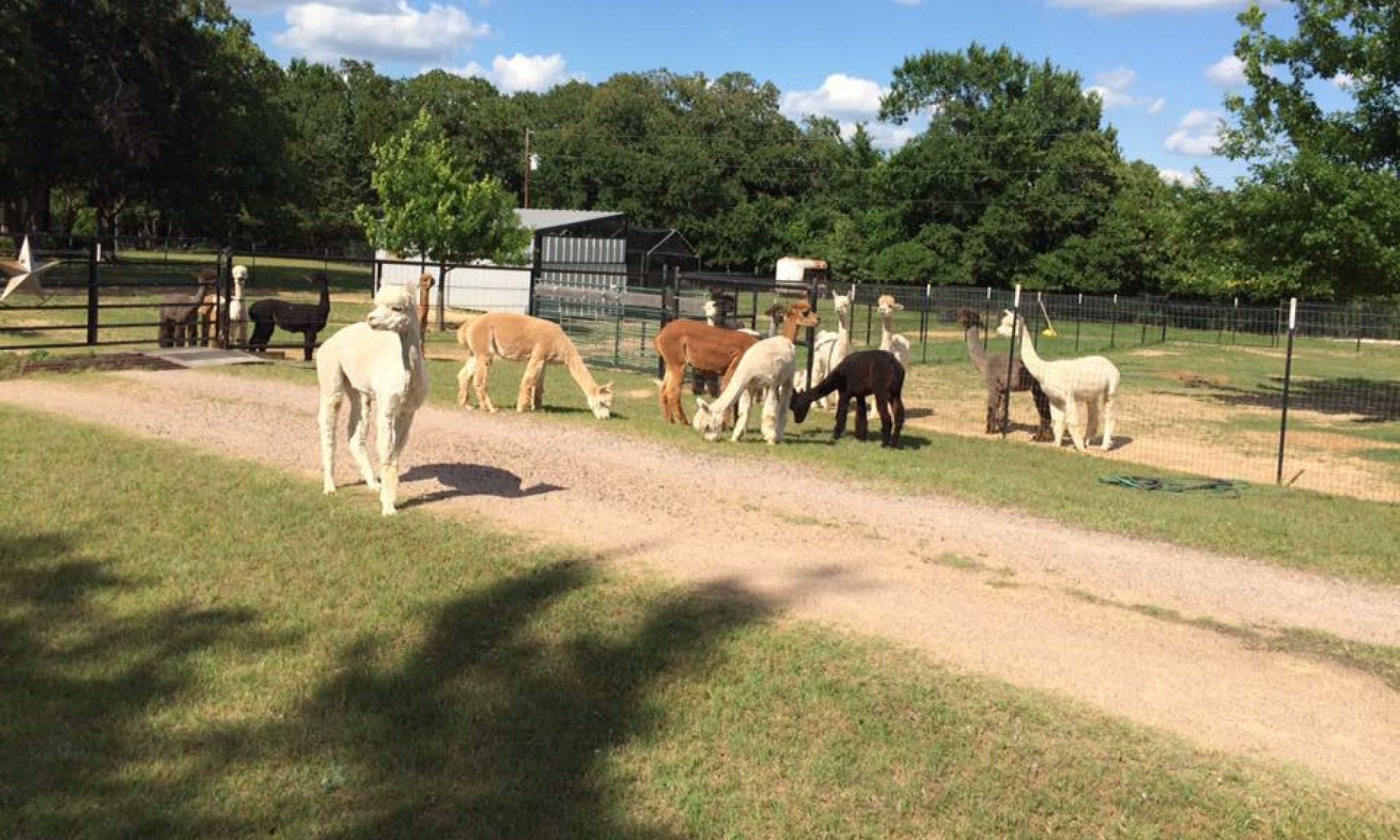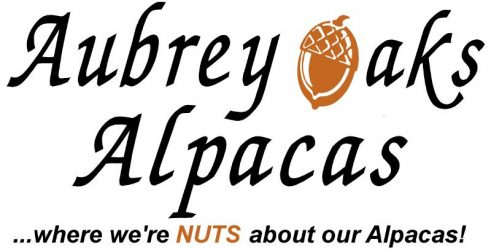These are our BASIC REQUIREMENTS for owning Alpacas
(and should be for all Alpaca Owners & Breeders):
- One of the very first things to do is locate a local and convenient veterinarian that is experienced and knowledgeable about Camelids (Alpacas/Llamas, etc.), or is willing to learn. They should be up-to-date on this information. Alpacas have only been in North America in larger quantities since 1984 and information changes. Establish a relationship early so that your first call to them is not an emergency. (We have relationships with 3 private practice veterinarians, as well as the closest Veterinary School at Oklahoma State University. If you don’t have a vet nearby then be sure that your mentor is capable and willing to assist you in an emergency. While you’re at it, join a local alpaca owners organization to improve your network for education, help, and advice.
- Alpacas are NOT PETS. They are livestock. They should never be raised like a dog or cat. You can end up with a dangerous animal that may need to be euthanized because they were not properly socialized. If you want them as “lawn ornaments” that is fine. They are cute to have in your pasture. Just don’t expect to have a “lap” Alpaca. They only put up with being petted, they don’t live for it.
- They are HERD animals. We always say that 1 by itself is not possible. 2 is not a herd. 3 is the barest of minimums. 4-5 is the beginnings of a herd, and is best for them and the owners.
- They should NOT be run with other species! The major exception is Livestock Guard Dogs (Great Pyrenees, Anatolian Sheperds, etc.) We do not knowingly sell to anyone co-pasturing them Equines (Horses, Donkeys, Minis), Bovines of any size or personality, Sheep, Goats, Pigs, etc. Poultry might be a possible option for some, but we do NOT recommend it nor will we knowingly sell ours into that situation.
- They should always be run in same sex pens. Therefore, males (both intact and geldings) and females must always be pastured SEPARATELY! Never put males with females except specifically to breed.
- The absolute worst thing to do is to put a gelding with a Female. The female, if open (not pregnant), will continually cush (lay down) for breeding and the gelding will continually mount—ESPECIALLY under cover of darkness. This results in infections, tissue scaring, and potentially death. The male’s penis is hard, sharp, and made of cartilage. It damages the Female during the breeding session that can last up to 30 minutes or more. The male will never get the female pregnant. The female will continue to cush. At least with an intact male, the female will (hopefully) get pregnant and the female will then “spit off” the male and refuse to cush.
- DON’T ASK to buy a baby (cria) to “raise it up” the way you want. Crias MUST stay with their Dams until weaning, and then they must stay with their herd until about 12 months of age. Yes, there are exceptions, but they are quite rare.
- You MUST have no-climb fencing (2″ x 4″ holes, preferably 5′ high), shelter, electricity, water, grass pastures, hay (preferably orchard grass), fans (at ground level), and no barbed wire. Electric fencing is not the best choice. Never, ever use a wading pool to cool them off—spray their legs & bellies (not their heads and backs) with the water hose when it is hot. Never, ever use a misting device as you can cook them.
- We RECOMMEND and PREFER that our clients be willing to provide regular (monthly) herd health routines. This means checking their weight, eyes, conjunctiva, ears , teeth, gums, body score, toenails (trimming), and underneath their tail. If you have white tailed deer near you in an area that is susceptible to Meningial Worm you should plan on monthly shots. We know of ranches that have lost extremely valuable Alpacas because the $1 per month shot was not given. We always say it is the cheapest form of insurance you can buy!
- You must have TIME to devote to your Alpacas. They should be on your property, not on a piece of property away from where you live. They require daily attention. Especially in hot and cold weather. They are not like cows.
- LEARN BEFORE YOU BUY! By reading this you have just gotten started. Next go read our website section called Learn About Raising Alpacas. Then join your local organization and take classes. Consider serving—you will always get more than you give. Purchase and read textbooks we recommend.
- VISIT us and other ranches. Book your appointment with us HERE. We always will recommend other trusted sources if we do not have what you want.
Read Next: Basic Alpaca Questions

